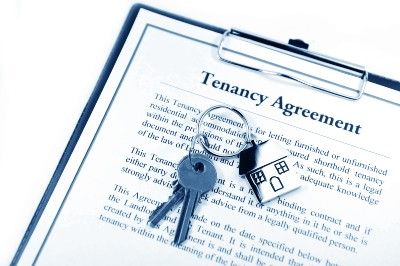Top Class Actions’s website and social media posts use affiliate links. If you make a purchase using such links, we may receive a commission, but it will not result in any additional charges to you. Please review our Affiliate Link Disclosure for more information.
A judge has ruled that DSS discrimination goes against U.K. equality laws, but some landlords are disregarding the new ruling.
On 1 July, the DSS discrimination case was heard in York County Court, and the judge issued a pivotal ruling that rental adverts with “No DSS” bans are unlawful. This historical court case was the first No DSS lawsuit heard in the U.K.
However, there are landlords who are still ignoring the ruling and discriminating against DSS-receiving renters, The Guardian reported.
Hundreds of renters are still searching for a place to call home due to landlords who are still posting “No DSS” in their adverts.
Legal action can come upon landlords who are still practising DSS discrimination.
Polly Neate, chief executive of the housing charity Shelter, told The Guardian hundreds of people have been contacting the charity since the case was heard, saying landlords are still rejecting the “No DSS” discrimination ruling.
Lawyer Iffat Saif, who receives DSS benefits, said she called 57 landlords after the ruling and was rejected after letting them know she is a DSS recipient, The Guardian reported. She said landlords have not been properly informed or simply do not know about the “No DSS” discrimination ruling.
The ruling was found after a single mother of two children was refused a rental because she was receiving DSS housing benefits, and she and two children ended up homeless as a result. The judge ruled that landlords who discriminate against potential tenants who receive DSS benefits are breaking equality laws.
The case has remained confidential and the plaintiff’s name is under the alias “Jane.”
Jane’s case started in October 2018, after she was given a no-fault eviction from her landlord. She spent weeks looking for a new rental and eventually found a two-bedroom house.
However, the rental was denied to Jane because of its “No DSS” policy. Jane and her children had to stay in a hostel due to the landlord’s DSS discrimination.
The case ruling is a victory in the eyes of the housing charity Shelter, which has been campaigning to end DSS discrimination for years.
The campaigns of the housing charity fought to end “No DSS” adverts posted by landlords. The charity believed anyone who received the housing benefits was being unfairly cast out of renting.
Unfortunately, the good news has come with the fact that some landlords are still discriminating against DSS receiving renters, or they do not know about the ruling.
Out of 4.5 million renters in the U.K., 889,000 receive DSS housing benefits. Around 20% of rental adverts demanded “No DSS” in housing descriptions.
The term “DSS” stems from the “Department of Social Security.” However, in 2001, the Department of Social Security changed to the Department for Work and Pensions.
The housing benefit used to be claimed by the Department of Social Security, so the name stuck around.
Unfortunately, the practice of rental adverts bearing “No DSS” stuck around as well. “No DSS” bans are used by landlords despite potential tenants being able to afford rent.
“No DSS” forbiddance at certain rentals rules out people receiving housing benefits automatically.
“No DSS” tactics have blocked hundreds of thousands of potential renters from landing a home solely because they receive DSS housing benefits, according to iNews.
As many as 63% of landlords completely single out or are likely to opt out of renting to people who receive government housing benefits.
“No DSS” bans have been listed on thousands of property adverts on popular rental websites like Zoopla.
According to Shelter and the National Housing Federation, out of 86,000 rental listings, there were 8,710 who demanded No DSS, iNews reported.
“No DSS” guidelines have been used in adverts and in-person exchanges to deny housing benefit receiving tenants. Landlords have also been known to request a year’s worth of rent in advance, another DSS discrimination practice.
DSS discrimination affects many women with disabilities.
The indirect discrimination of disabled women easily happens as a result of “No DSS” policies because disabled women are more likely to receive housing benefits, according to the BBC.
Other charities have been supporters of ending “No DSS” discrimination, including charity End DSS Discrimination, the Equality and Human Rights Commission and the Nationwide Foundation.
These foundations hope the victory in the “No DS” case will raise red flags and legal claims against any landlord who continues “No DSS” discrimination.
What is your opinion about landlords still ignoring the ruling in the DSS discrimination case? Let us know in the comments!
Check back daily for the most recent U.K. class action lawsuit and consumer protection news.
Read More Lawsuit & Settlement News:
Things to Know as Your Mortgage Holiday Comes to an End
Lloyds, Others Fined £64M for Treating Mortgage Customers Unfairly
BOE Says COVID-19 Economic Slump Less Severe Than Expected; Bank Rate Steady
50M Face Masks Meant for NHS Workers Recalled Over Safety Concerns
ATTORNEY ADVERTISING
Top Class Actions is a Proud Member of the American Bar Association
LEGAL INFORMATION IS NOT LEGAL ADVICE
Top Class Actions Legal Statement
©2008 – 2024 Top Class Actions® LLC
Various Trademarks held by their respective owners
This website is not intended for viewing or usage by European Union citizens.















